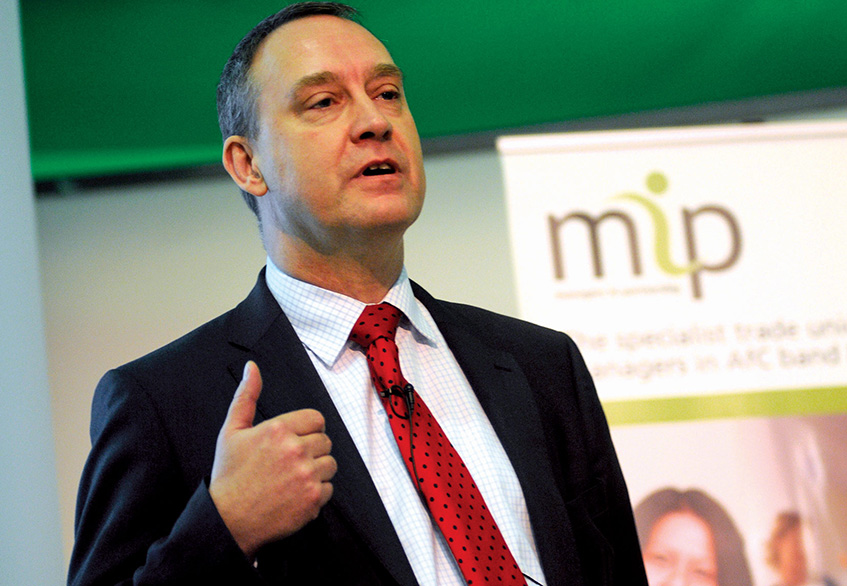MiP Conference: “Managers need to be brilliant”

Matthew Swindells, national director for operations and information at NHS England, told MiP’s Conference that NHS managers need to be “strong, resilient and brilliant” to meet the challenges posed by the Five Year Forward View and the integration of health and social care.
He said the NHS had made “spectacular progress” since the 1980s, when people had had to wait 12 to 24 hours in A&E and up to two years for a non-urgent operation. While the NHS was doing “fantastic work every day”, he acknowledged life for managers was particular tough at the moment.
STPs had brought people from health social care together, often for the first time, he said. But such partnership working required “egos to be checked in at the door” and more open engagement with patients and staff.
“We need to move from senior management doing this to engaging the public. We need to widen it to a conversation with the people who are doing the work. And we need to widen it to a conversation with the voluntary sector.”
He warned the next stage would be tough, “with more noise around STPs and more difficult conversations”.
Swindells played down the significance of competition in the future development of the NHS. “I don’t think incentivising hospitals to admit more people through A&E is the brightest thing to do now. “We are not expecting [Payment by Results] to be a significant part of how we plan the next two years’ contracting.”
Related News
-

MiP responds to the abolition of NHS England
Government risk repeating same mistakes as Lansley by abolishing NHS England and cutting more staff from ICBs, says MiP.
-

NHS England and central staff could be cut by 50%, NHSE has announced
Government planned cuts at NHS England go much further than previously announced, with up to 50% of staff at risk.
-

New MiP survey shows growing support for principle of regulating managers, but warns it won’t improve patient safety
MiP’s member survey on regulating NHS managers shows managers are still not convinced regulation will improve patient safety or raise standards, despite growing support for it in principle.